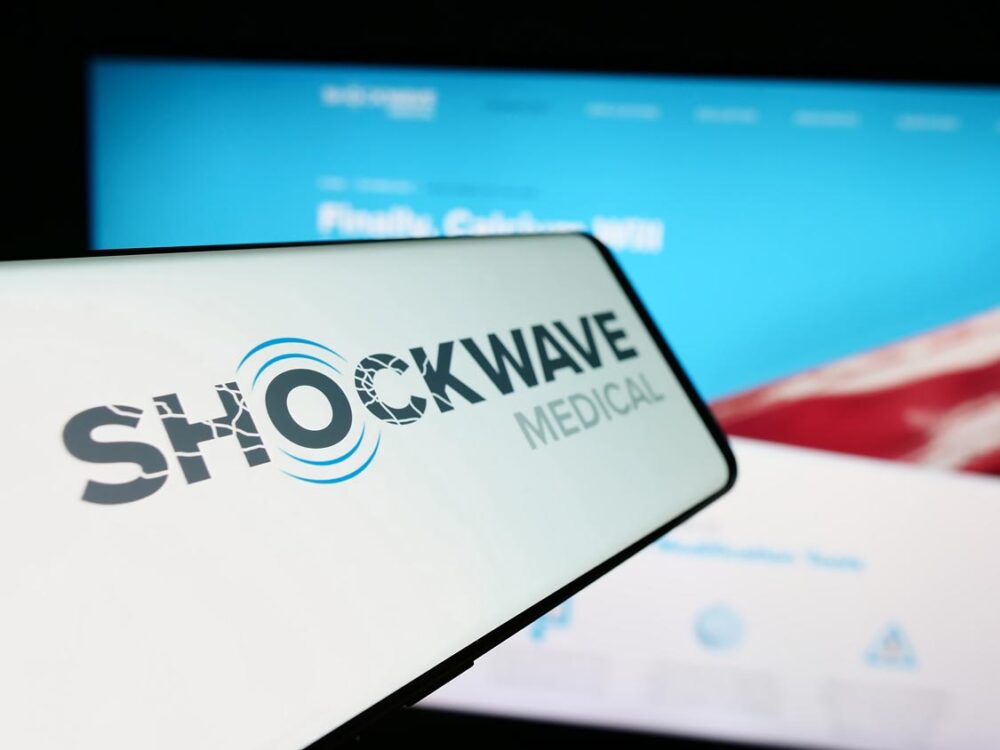Advertisment
First clinical outcomes associated with the Shockwave Javelin Peripheral IVL Catheter – Shockwave Medical / J&J MedTech

Shockwave Medical, Inc., part of Johnson & Johnson MedTech and a global leader in the field of circulatory restoration, announced the first clinical outcomes associated with the Shockwave Javelin Peripheral IVL Catheter, a novel, non-balloon-based lithotripsy platform designed to modify calcium and cross extremely narrowed vessels in patients with peripheral artery disease (PAD). Despite the challenging nature of the calcified lesions studied, the 30-day results met both prespecified performance goals while showing a similar safety and effectiveness profile to balloon-based Shockwave IVL catheters. The results, which helped support FDA clearance of the technology last month, were presented as a late breaker today at the annual Vascular InterVentional Advances (VIVA) meeting.
“The outcomes were exactly what we have come to expect from IVL studies – a strong safety profile with the low final residual stenosis that physicians would hope to achieve,” said JD Corl, MD, FACC, FSCAI, Medical Director of the PAD/CLI Program at The Lindner Center for Research and Education at The Christ Hospital and Principal Investigator of FORWARD PAD Study.† “These new initial data are promising and pave the way for a new approach to the application of Shockwave IVL in our peripheral practices. With technologies now suited to safely address both crossable and uncrossable lesions, IVL has a unique opportunity to play an increasingly important role in optimizing outcomes for a wider set of patients with PAD.”
PAD affects more than eight million people aged 40 and older in the United States.1 People suffering from PAD have not only impaired quality of life but also increased risk of heart attack or stroke Chronic limb-threatening ischemia (CLTI) is the most advanced and serious form of PAD, impacting nearly two million patients in the U.S. It is associated with 40% major amputations at one year, and a 50% mortality rate at five years, worse than most forms of cancer.
The Shockwave Javelin Peripheral IVL Catheter is a novel, non-balloon-based device that features a single 120-pulse lithotripsy emitter at the distal tip of the catheter. It is designed for use in sub-total occlusions or extremely narrowed vessels in which a wire will cross but devices will not. With this new platform, the sonic pressure waves expand spherically from the forward-shifted emitter beyond the tip of the catheter, allowing modification of the obstructive calcification that facilitates device crossing.
The Shockwave Javelin Peripheral IVL Catheter met both prespecified safety and effectiveness endpoints, with a major adverse event rate of 1.1% at 30 days, and a technical acute procedural success rate of 99%. Additionally, at final angiography, angiographic complications were restricted to a single case of dissection with no reported perforations, abrupt vessel closure, distal embolization or no-reflow.
The feasibility and IDE studies of the Shockwave Javelin IVL catheter, MINI S and FORWARD PAD, respectively, were prospective, multi-center, single-arm, angiographic core-lab adjudicated studies with similar inclusion and exclusion criteria. The studies enrolled 90 patients with 103 heavily calcified, stenotic peripheral arterial lesions. The average lesion length was 77mm, and just under half of the target lesions were located below the knee, and over a third were chronic total occlusions.
“Recognizing the risks that patients with difficult-to-cross lesions are exposed to with other treatment modalities, we’re extremely optimistic about the role that Shockwave Javelin could play in offering an effective alternative crossing and treatment tool with a strong safety profile,” said Nick West, MD, Chief Medical Officer at Shockwave Medical. “We look forward to learning more about the performance of the Shockwave Javelin IVL catheter as we add to the ongoing trial follow-up data with a limited market release of the device in the coming months.”





